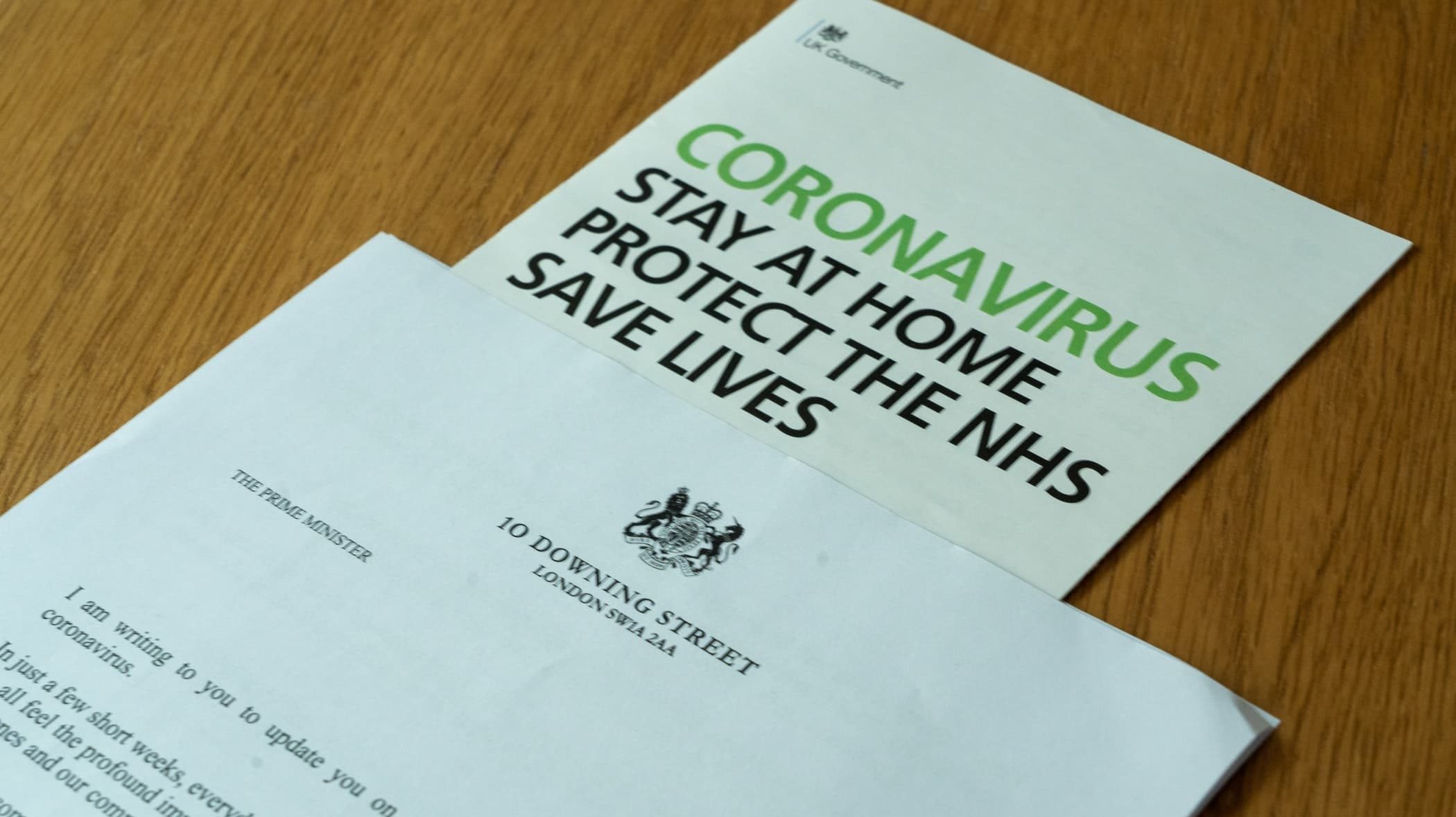 Nada Khan is an Exeter-based NIHR Academic Clinical Fellow in general practice and GPST4/registrar, and an Associate Editor at the BJGP. She is on Twitter: @nadafkhan
Nada Khan is an Exeter-based NIHR Academic Clinical Fellow in general practice and GPST4/registrar, and an Associate Editor at the BJGP. She is on Twitter: @nadafkhan
“Life can only be understood backwards; but it must be lived forwards.”
― Søren Kierkegaard1
What is the right way to reflect and learn from a situation, especially one that is vast, complex and continues to throw up ongoing challenges? In 2021, then Prime Minister Boris Johnson announced an independent public inquiry to examine the actions of the State during the COVID-19 pandemic and to learn lessons for the future. Many of us will have been personally affected and involved with the response to COVID, and some of us will welcome this opportunity to shine a light onto the now seeming-blur of events that took place in the early stages of the pandemic. But what is the right way to look at our response to COVID, and what’s happening in other countries?
The UK COVID-19 Inquiry
Inquiries should seek to do three things: establish the facts, bring a sense of resolution to victims, and help to prevent repeated mistakes in the future.2 The UK COVID-19 inquiry is aiming to achieve these goals across different modules. Four modules are currently up and running, collecting evidence from witnesses ranging from politicians, scientistic experts, and members of the public. These modules relate to resilience and preparedness, core UK decision-making and political governance, the impact of COVID on healthcare in each of the four UK nations, and finally, vaccines and therapeutics. Future modules will focus on areas including procurement, how COVID was managed within the care sector, the UK test and trace programme, and health inequalities, amongst others.3
The inquiry is scheduled to conclude hearings in 2026, although the inquiry plans to release reports on each module as it moves along. We’ve already had hearings on Module one (resilience and preparedness) which ended in July 2023, and preliminary hearings on Module two (core UK decision-making and political governance), so, we may have reports on these themes within the next year.4 Hearings are already starting on Module four (vaccines and therapeutics) from September onwards, so the inquiry is ticking along at pace.
There is already a lot of information to sift through on the COVID inquiry website – 627 documents when I checked at the end of August 2023. Some of the witness statements make for uncomfortable reading and are a bit like watching a car crash in slow motion. I’m still reeling from Matt Hancock’s official statement and testimony to the enquiry; as health secretary he described the ‘flawed doctrine’ of pandemic preparedness for which the sole focus was a future influenza pandemic, and the lack of a plan to identify and protect vulnerable adults in care homes.5 There are surely lessons to be learned here already, if nothing else, about who we should trust in the role of health secretary in the future.
Every story matters, especially in a national emergency that has affected the daily lives of UK citizens, and taken so many others. So, aside from the numerous testimonials and evidence from the experts, the COVID inquiry listening exercise is a chance for anyone in the general public to submit a story about their experiences during the pandemic, and is meant to compile a greater understanding of how COVID impacted on lives and communities across the country. These experiences are meant to feed into the Covid inquiry from Module three (the impact of the pandemic on healthcare systems across the UK) onwards. How these stories will inform the wider story is unclear, as there is a lack of clarity about how these stories will be analysed, or by whom, or how exactly they will feed into the overall inquiry, with an as yet unnamed partner delivering the analysis and final findings from the listening exercise.6 Maybe it will be therapeutic for some regardless, or meaningful to contribute to the national inquiry, as it is a chance to put down in words a story, any story about how COVID has impacted on our unique personal and professional experiences.
The international perspective
The UK is not the only country trying to put COVID into perspective through an independent inquiry, but what has been the approach of other nations?
Notable for its initial approach to avoid national lockdowns, Sweden maintained a strategy of keeping things open rather than shut, promoting voluntary social distancing and hygiene ahead of strict lockdowns and school closures. The Swedish COVID commission, established in June 2020, has moved at a much faster pace than other countries, completing its examination of national policy during the pandemic and publishing a final report in February 2022.7 The report identified flaws in care for older people and organisation of health care and staffing at systemic and policy levels, providing several recommendations to help withstand the next pandemic. The Swedish Commission did not, however, condemn the national approach, suggesting that the approach to voluntary rather than mandatory lockdowns allowed Swedish people greater freedoms compared to European neighbours. As we here in the UK continue to evaluate the impacts of the national lockdowns on everything from mental health to health care provision, it is important to assess what happened when other countries took an alternate approach for future pandemic planning.
Following suit with a rapid inquiry turnaround, the Australian Senate Select Committee published a final report on the Australian response to Covid in April 2022. The report recommendations focus on improvements to pandemic planning and management of international borders, the impact of COVID on First Nations communities, children and people living in residential care facilities, highlighting failures to plan for the pandemic.8 An early, common theme, it appears, is our international failure to be ready for COVID.
Here in the UK, Scotland is running its own Covid inquiry in parallel with the UK-wide inquiry despite the intention of the UK COVID-19 inquiry to explore responses within devolved nations. It may seem like a duplication of effort, but pandemic planning and approaches varied widely within different devolved states or regions within the same country. Taking Canada as an example, the Canadian provincial responses to COVID varied widely in terms of physical distancing and closures of non-essential businesses. Similarly, different US states led their own policy decisions, taking wildly divergent approaches to school and business closures, economic support packages and public health system responses with Republican-voting states taking on less stringent policies compared to more Democratic states in the US Northeast.9
What we know is that different countries responded to the pandemic in dramatically different ways, in many cases due to the unique demographic, political, financial, social and healthcare factors at play nationally, evolving and morphing throughout the pandemic timeline. Some lessons learned through national COVID inquiries will be country and situationally specific, and it may be difficult to make direct comparisons between policy decisions at an international level given these contextual issues. It is important, however, to look and reflect across these international enquiries because we know that some countries fared better than others in measures such as deaths per capita. What’s interesting, however, is how policy, economic and public health decisions in different devolved territories, states and nations within a single country, where variation in population and resources might be less marked, impacted on these same outcomes. The BMJ has recently called for a federal enquiry into Canada’s response to COVID, highlighting the ‘fragmented health leadership across the federal, provincial, and territorial governments’ and the varied pandemic performance across each of Canada’s provinces.10 The UK, and Scottish, COVID inquiries have an opportunity here to make some of these comparisons within our nation about decision making during the pandemic and consider the potential impact of coordinated responses and stronger national leadership against more local responses.
Final thoughts
We are staring at ourselves in the mirror, but we need to act on what we see. If the purpose of the UK COVID-19 inquiry is to identify the lessons learned from what we did, and didn’t do well during the COVID pandemic, we need to know everything that is knowable. If anything, as the Swedish and Australian reports have already highlighted, this inquiry needs to inform our pandemic preparedness so we are more ready the next time this happens. The UK COVID inquiry, and the lessons learned internationally and from devolved nation enquiries, are a chance for us to examine, with care, and hopefully compassion, the best and the worst of what we did, and how we could do better.
References
- Søren Kierkegaard, Journalen JJ:167 (1843), Søren Kierkegaards Skrifter, Søren Kierkegaard Research Center, Copenhagen, 1997–, volume 18, page 306.
- he difficulties facing Britain’s Covid-19 inquiry. The Economist. 2023 8 June 2023.
- Structure of the Inquiry: UK Covid-19 Inquiry; 2023 [Available from: https://covid19.public-inquiry.uk/structure-of-the-inquiry.
- Booth R. What will the Covid inquiry look at – and when will we get answers? The Guardian. 2023 13 June 2023.
- First witness statement of Matt Hancock: UK Covid-19 Inquiry;[Available from: https://covid19.public-inquiry.uk/wp-content/uploads/2023/06/27180554/INQ000181825.pdf.
- Every Story Matters – how it will work: UK Covid-19 Inquiry;[Available from: https://covid19.public-inquiry.uk/wp-content/uploads/2023/05/2023-04-27-ESM-Summary-Document.pdf.
- Ludvigsson JF. How Sweden approached the COVID-19 pandemic: Summary and commentary on the National Commission Inquiry. Acta Paediatr. 2023;112(1):19-33.
- Select Committee on Covid-19 – Final Report 2022 [Available from: https://parlinfo.aph.gov.au/parlInfo/download/committees/reportsen/024920/toc_pdf/Finalreport.pdf;fileType=application%2Fpdf.
- Hallas L, Hatibie A, Majumdar S, Pyarali M, Hale T. Variation in US states’ responses to COVID-19. University of Oxford. 2021.
Featured photo by Nick Fewings on Unsplash






